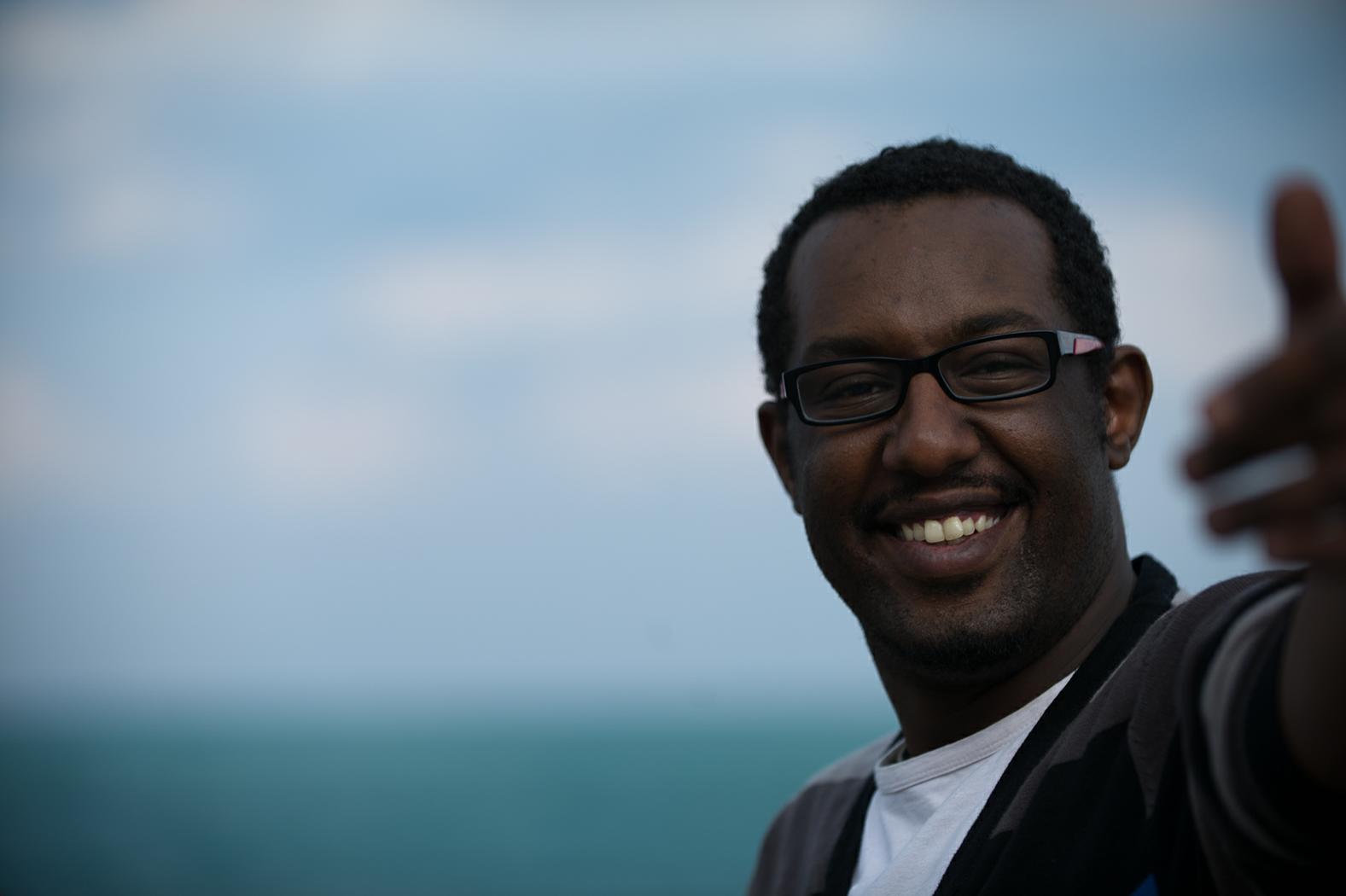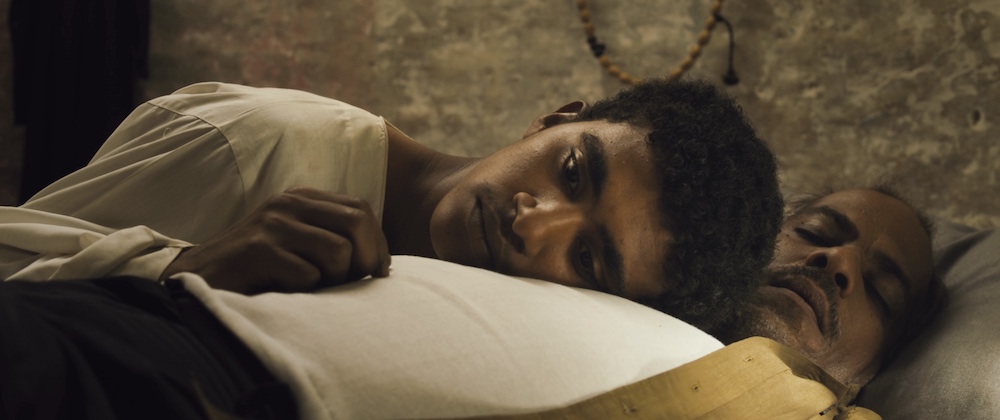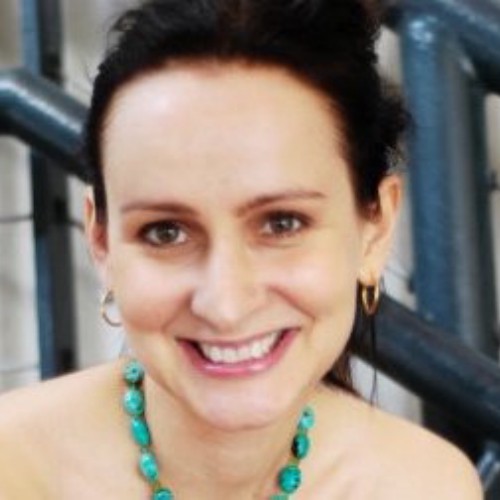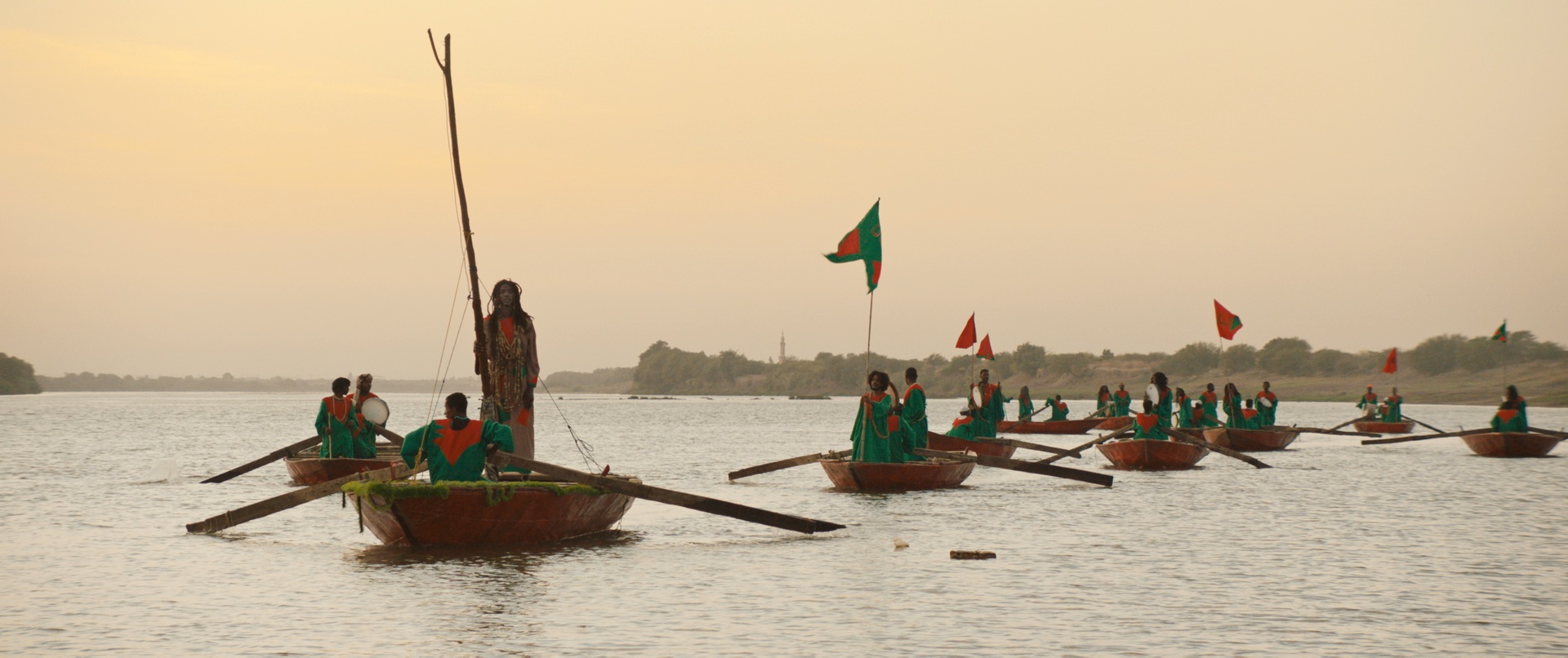Out of all the films I watched in Venice, ‘You Will Die at Twenty’ probably had the most beautiful opening scene. Deep in the desert of Central Sudan, with Sufi shrines all around dotting the landscape like perfectly crafted cacti made by humans, a mother approaches a religious man to have him bless her newborn baby. But instead of a blessing, the holy man delivers a curse, saying that the child, Muzamil will die at the age of 20.
Sakina, the baby’s mother, is left distraught and in disbelief, while her husband, unable to deal with the despair, runs away.
Fast forward — first to Muzamil as a pre-teen and then to him as a 19-year old and it turns out that having a curse on your head makes for some very difficult coming of age. Go figure! Well, anyone who has ever been to a fortune teller, even for a fun outing with friends will tell you, once you’ve heard your fate, it’s hard to steer clear of the prophecy. Those words, that prediction become your jail, even if you don’t believe in the stuff.
Amjad Abu Alala is a filmmaker to watch. Within his simple enough story of superstition and belief, he plants the seeds for a wondrous film without borders. Co-written with Yousef Ibrahim, the story of Muzamil and the cast of characters around him becomes a map for our human existence, and it doesn’t matter where we come from or what we actually believe, we will see ourselves in those well-crafted characters. There are traditionalists, like Muzamil’s mother, revolutionaries like the interesting Suleiman who arrives into the leading character’s life to teach him about love and adventure. And then there is the picturesque village near Madani, in Central Sudan where the film was shot, which quickly turns into another, beautiful, to-be-discovered character in Abu Alala’s film. And with former dictator Omar al-Bashir finally having been indicted on corruption charges, this suddenly becomes an even more timely, important film.
‘You Will Die at Twenty’ will play next at the Toronto International Film Festival. Following is my interview with its filmmaker.

What was the inspiration for this film?
Amjad Abu Alala: I think what I was trying to say was one word — freedom. Freedom from all that can take you and put you in a box. This box is your destiny, or this box is what you were born to be. You can say that box is political and religious, and in the Arab world and Africa it’s also about culture which can be nice, but also limiting. We are a world of limitation.
In Sudan, after thirty years of dictatorship, and I’m kind of an activist, you cannot accept that when they came, in 1989 the first thing they did was cancel the cinemas. They stopped the cinematic institution in Sudan and before that we had cinema — they just stopped it. Everyone around, we had that revolutionary sense.
Then I found this story mainly about death, but I saw it from a point of view of revolution.
In fact, you do dedicate the film to the victims of the Sudanese revolution.
Abu Alala: The dedication happened later. Why? Because it just happened that the first day when I said “action!” — the 17th of December 2018 — we started shooting the film after struggling to reach that point. That day was the first day when the revolution started. It happened to be the first day of the shooting. What a coincident. Then the big time of the revolution came in April, when I just finished editing and was supposed to go back to Paris. I postponed everything and told my producer “I need to go back to Sudan and be a part of this.” From the 6th of April for two months we were on the street. With my actors and crew we were there for two months.
It is also reflected in the song when Muzamil meets Suleiman for the first time, the song was supposed to be ‘La Boheme’ by Aznavour but after staying in the street for two months that song of revolution was in my mind and I asked the editor Heba [Othman] I said please take this out, I love Charles Aznavour, I attended his last concert in Dubai but now I feel the revolution song.
An event in time can change your vision as a filmmaker. That’s very flexible!
Abu Alala: I am flexible. I think cinema is experience. Maybe that was part of what I believed, even if I put in the wrong songs, I don’t care.
You filmed in Sudan, and you chose to set the film in central Sudan which is an interesting choice also from a political POV. Because we don’t know so much about central Sudan. We know about South Sudan or Khartoum. Was that a conscious choice?
Abu Alala: I think it’s more about that when I made that choice, I wanted to go to my roots. Central Sudan, the city Madani is where my mother and father are from. And although I was born in Dubai, I spent five years there. The villages all the time we’d go there for weddings and such. I thought if I would make this film I wanted to places I know and I love.

And the area where I shot you see lots of shrines that haven’t been seen before and maybe cinema should do that. For the world, like a place should be a visited place. It’s Sufi and for hundreds of years holy men have been buried there so there are hundreds of shrines. It’s beautiful.
So it’s a primarily Sufi area and all the dervishes and practices we see in the film are authentic?
Abu Alala: Part of my memory and also the film mood’s is right there. The area is in between to the two niles and the Niles you see there is the Blue Nile which is very dangerous because of its currents.
I made Muzamil phobic of the water because that’s how I am. I would never go swimming here in Venice. I’ve been to Brazil and I would never swim there. It happened because when I spent time in Sudan, whenever they’d talk about young men dying they would die in the water — in the Nile.
I want to talk about how you found your actors, including the two women actors and the kids who play Muzamil, your lead character.
Abu Alala: It’s interesting to talk about actors, because when we talk about Sudan, it’s a country without cinema — for twenty years. So I don’t have professional cinema actors. I have professional actors like Sulaiman [played by Mahmoud Elsaraj] and Sakina [played by Islam Mubarak] they are professional actors mostly in theater. For me I had to choose new faces and the best from old faces — professional faces I mean. I was more scared of the professional ones because the new ones are pure and I can tell what I want of them. With the professional actors I had to work extra, just to take the theater out of them. It took me with all the actors one year of interviews and working with them.
Did you do a workshop?
Abu Alala: I did a workshop for one year and one month before shooting I brought a professional acting coach from Egypt. I wanted someone, she’s an acting coach but at the same time a famous actress — Salwa Mohamed Ali. And they loved her. I wanted them to practice before shooting with someone they believe in.
You’ve had the Doha Film Institute supporting the film, which to me is like an seal of approval for excellence. But then you’ve also had Mohamed Hefzy and his Film Clinic come on later in the project and he’s a producer who recognizes when local cinema has international appeal. Did you always know that international audiences would connect with this project?
Abu Alala: Yes, from the beginning. When I started I knew my target, that I wanted to be in international festivals. I work as a programmer for the Sudan Independent Film Festival in Khartoum and we do it in a very difficult condition — without money — but I’ve always bought the best films from around the world. Even if I had to beg for films without money. And I used to work with the Dubai International Film Festival, with Masoud [Amralla Al Ali] around ten years ago.
I chose the story without thinking about my target. I wanted to tell a story about a forgotten country, Sudan, but at the same time it’s a story that can take place in India, or Latin America. Mohamed Hefzy is a friend of mine, and I love him because I respect what he’s trying to do in Arab cinema, since he started. I was so lucky, he joined very late, and for this film he was a mentor for the script three years before, in Doha. Now he’s the Middle East film distributor.
What do you want a regular audience member, not a film critic or writer, to take away from your film?
Abu Alala: That’s difficult… I think I want them to remember the film when anyone mentions Arab or African films. This is what I like for Sudan in general — it’s connected to both worlds. I want them to remember Muzamil, I want them to remember also what I want to say about freedom, if I said it right in the film.


